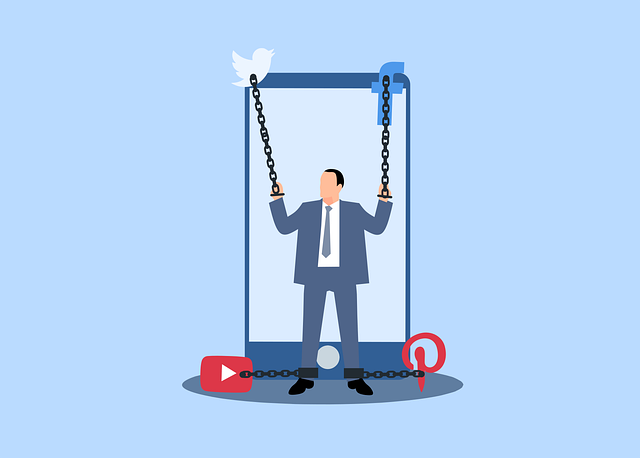Littleton Developmental Disability Therapy (LDDT) excels in podcasting by combining strategic planning, audience understanding, and expert insights. They produce high-quality mental wellness podcasts through advanced recording techniques, meticulous editing, and post-production enhancements. Distribution strategies leverage online platforms, social media, and email marketing to reach caregivers, therapists, and individuals with developmental disabilities, offering valuable content on topics like stress reduction and emotional healing.
“Explore the powerful medium of podcasting for mental wellness with our guide to producing a series focused on Littleton Developmental Disability Therapy. From planning and content creation to advanced editing techniques, this comprehensive overview ensures every aspect is covered. Learn how to engage your target audience by brainstorming relevant topics with expert insights. Discover optimal recording practices, enhance audio quality, and master storytelling through sound design. Finally, explore effective distribution and promotion strategies to maximize reach.”
- Planning and Development: Defining Goals and Target Audience for the Littleton Developmental Disability Therapy Podcast Series
- Content Creation: Brainstorming Engaging Topics and Incorporating Expert Insights
- Recording Techniques: Equipment, Environment, and Best Practices for High-Quality Audio
- Editing and Post-Production: Enhancing Listeners' Experience through Sound Design and Storytelling
- Distribution and Promotion: Strategies to Reach and Engage Your Audience Effectively
Planning and Development: Defining Goals and Target Audience for the Littleton Developmental Disability Therapy Podcast Series

Planning and developing a podcast series like Littleton Developmental Disability Therapy requires a clear vision and strategic approach. The first step involves defining specific goals that align with the overall mission. For instance, the goal could be to provide accessible resources for individuals with developmental disabilities and their families, fostering a better understanding of mental wellness practices. Identifying the target audience is equally crucial; in this case, it would primarily include caregivers, therapists, and individuals living with developmental disabilities.
By understanding the intended listeners, creators can tailor content that resonates with their unique needs. Incorporating topics like burnout prevention, stress reduction methods, and emotional healing processes can attract and engage the audience. These themes are particularly relevant for those navigating the challenges of supporting individuals with special needs while prioritizing self-care.
Content Creation: Brainstorming Engaging Topics and Incorporating Expert Insights

Creating content for a mental wellness podcast involves a thoughtful process of brainstorming engaging topics that resonate with listeners. At Littleton Developmental Disability Therapy, we recognize that diverse perspectives and experiences are key to fostering meaningful conversations around mental health. Our team meticulously curates episodes centered on themes like communication strategies, mind over matter principles, and emotional healing processes, ensuring each topic offers practical insights and valuable take-aways.
By incorporating expert insights from therapists, psychologists, and individuals with personal stories of resilience, we strive to provide a well-rounded approach to mental wellness. This collaborative effort allows us to delve into the complexities of various emotional challenges while offering actionable steps for listeners navigating their own journeys.
Recording Techniques: Equipment, Environment, and Best Practices for High-Quality Audio

When producing a mental wellness podcast series like those offered by Littleton Developmental Disability Therapy, paying meticulous attention to recording techniques is paramount for delivering high-quality audio content. The right equipment, carefully curated environment, and adherence to best practices can significantly enhance the overall listening experience. Invest in a quality microphone, ideally designed for podcasting, to capture clear voices without background noise. Soundproof or acoustically treated rooms are ideal for recording, minimizing echoes and unwanted sounds that can disrupt the flow of discussions.
Best practices include ensuring adequate lighting to avoid harsh shadows, positioning microphones at the correct height, and using headphones for monitoring during recording. Regularly calibrate audio equipment to maintain consistent sound levels across episodes. Additionally, employing noise-canceling techniques, such as using sound blankets or white noise machines, can further refine the audio quality. Incorporating these strategies not only enhances the listening experience but also positions your podcast as a valuable resource in the mental wellness space, potentially appealing to healthcare provider cultural competency training audiences and those interested in mental wellness journaling exercise guidance or compassion cultivation practices.
Editing and Post-Production: Enhancing Listeners' Experience through Sound Design and Storytelling

The editing and post-production phases are vital components of crafting a compelling mental wellness podcast series. At Littleton Developmental Disability Therapy, we understand that sound design and effective storytelling can significantly enhance the listener’s experience, making complex topics accessible and engaging. Through meticulous editing, we ensure smooth transitions between segments, optimize audio clarity, and eliminate unwanted noise, allowing for a seamless journey through each episode.
Post-production involves adding layers of creative elements to bring the podcast to life. This includes strategic sound effects, background music, and voiceover narration, all tailored to reinforce the narrative. By balancing these elements, we create an immersive environment that not only entertains but also educates our audience about essential topics like self-care routine development for better mental health and community outreach program implementation. This meticulous approach ensures that each podcast episode becomes a powerful tool in promoting mental wellness.
Distribution and Promotion: Strategies to Reach and Engage Your Audience Effectively

Effective distribution and promotion strategies are key to ensuring your mental wellness podcast series reaches and engages its intended audience. One powerful approach is to leverage online platforms tailored to health and wellness content, such as those offered by Littleton Developmental Disability Therapy. By distributing your episodes on these platforms, you can tap into communities actively seeking resources for emotional well-being. This includes individuals interested in learning Stress Reduction Methods and exploring techniques for improving Emotional Intelligence and Emotional Regulation.
Social media plays a crucial role in promotion as well. Craft engaging content that encourages sharing and discussion. Utilize relevant hashtags to increase visibility and connect with influencers or industry experts who can amplify your message. Collaborating with these individuals can expand your reach significantly, introducing your podcast to new audiences interested in mental health topics. Additionally, consider email marketing campaigns targeted at subscribers and followers, offering exclusive content or early access to episodes to foster a loyal listener base.
The production of a mental wellness podcast series, such as the Littleton Developmental Disability Therapy Podcast, requires careful planning and execution. By defining clear goals and understanding the target audience, engaging topics can be brainstormed and expert insights incorporated effectively. High-quality audio recording techniques, coupled with meticulous editing and post-production, ensure an enhanced listener experience. Successful distribution and promotion strategies are also vital to reaching and engaging your intended audience, ensuring the podcast’s impact and longevity.













